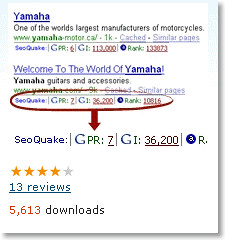 We spend lots of time researching keywords and building links to our website shopping cart pages. The more inbound links and related outbound links we have, the better it is for our site in terms of Search Engine Optimization (SEO).
We spend lots of time researching keywords and building links to our website shopping cart pages. The more inbound links and related outbound links we have, the better it is for our site in terms of Search Engine Optimization (SEO).
It does not take a genius to create a link which leads back to a website shopping cart page. However, it does require a lot of effort to continue creating fresh links. With this in mind it is always important to create links wisely. This means selecting the right keywords and choosing the best sites to place those links at.
Unfortunately, many merchants have been doing something that is ethically wrong in relation to keyword selection. In addition to this, they have no idea that their actions can be detrimental to their sites, SEO-wise.
Misleading Keywords
Using keywords that are loosely related to your site can land you in some trouble. Take this example for instance: If you sell Asics running shoes, it would only be logical that your keywords be closely related to Asics running shoes. However, some merchants have found a novel way to drive traffic to their sites using broadly related keywords. In this example, a merchant might use “Nike running shoes” if he found that this keyword was highly searched with low competition.
The merchant would use such a keyword in the hopes that the person following the link back to the store would see Asics shoes as a good alternative and end up making a purchase from the store. Unfortunately, the truth of the matter is not so rosy. Most visitors would feel mislead and bounce right off the destination page, empty-handed, of course.
What Will Google Think?
Google takes into account over 200 factors when ranking a site. One of the factors is the bounce rate or how long a visitor stays on a page after following a link to it. Google is in the business of presenting accurate results to users based on search terms provided by users of its search engine. If a user bounces off a destination page just a few seconds after following a link that Google suggested on its SERP (search engine results page), Google will regard the destination website shopping cart page as not being a very good match for that particular link term. When this happens, all your SEO effort would be for naught.
Long Run
SEO takes a bit of work and time but it’s worth it in the long run if done properly. There is no shopping cart help or simple shopping cart shortcut to get past this. If you break it down, you only need to build 10 links a day, 5 days a week for 5 months to end up with 1000 links. That does not sound too bad, now does it?
Recent Posts:
- Get A Custom Designed Website + Branding Solution With InstanteStore – From Concept To Creation
- Why Aesthetic Visuals Matter on Your Website and Social Media.
- How InstanteStore Helped Sagiri Dayal Launched A Successful Online Store With Immediate Sales
- SCAM ALERT – Fake Company Asking People To Send Them Money For Tasks
- How To Setup Stripe Account For Ecommerce

